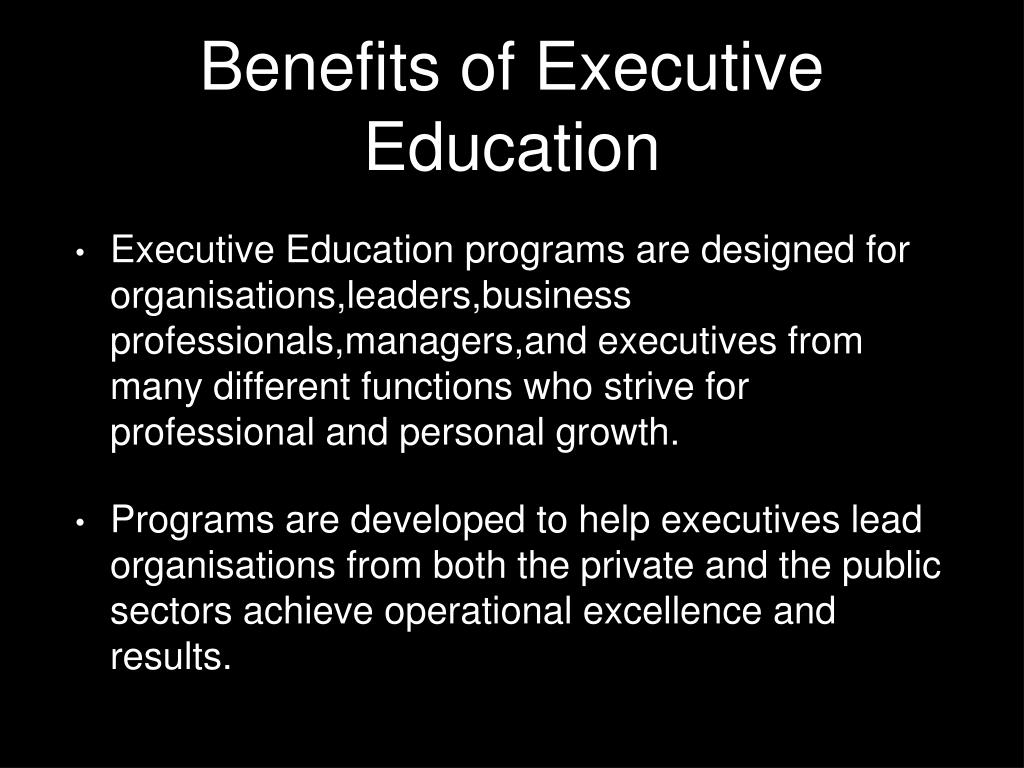Are Executive Education Programs Worth It

Imagine stepping out of a sprawling campus building, the crisp morning air filled with the murmur of ambitious conversations. Executives, still buzzing from a late-night strategy session, clutch steaming mugs of coffee as they head towards their awaiting cars. The question lingering in the air: was the intensive program worth the investment of time, energy, and considerable financial resources?
Executive education programs, offered by top business schools worldwide, promise to sharpen leadership skills, expand strategic thinking, and provide invaluable networking opportunities. But with tuition costs often reaching tens of thousands of dollars, it's crucial to examine whether these programs truly deliver a tangible return on investment for both individuals and their organizations.
The Allure of Executive Education
The history of executive education traces back to the early 20th century, with programs initially designed to train managers in the burgeoning industrial age. Over time, these programs have evolved to address the increasingly complex challenges of the global business environment. They are now designed to equip seasoned professionals with the tools and frameworks needed to navigate uncertainty and drive innovation.
According to a 2023 report by the Graduate Management Admission Council (GMAC), demand for executive education remains strong. Organizations recognize the need to continuously upskill their leaders in areas like digital transformation, sustainability, and global leadership. The programs offer a unique blend of academic rigor and practical application, often incorporating case studies, simulations, and guest lectures from industry experts.
What Do These Programs Offer?
Executive education programs come in various formats, ranging from short, focused courses to comprehensive, multi-month leadership development programs. The curriculum typically covers core business disciplines such as finance, marketing, and operations, but with a strategic and senior management perspective. Participants also learn about emerging trends and technologies that are shaping the future of business.
Beyond the academic content, a significant benefit of executive education is the opportunity to network with peers from diverse industries and backgrounds. These connections can provide valuable insights, collaborations, and career opportunities. The learning happens both inside and outside the classroom.
"Executive education provides a unique platform for leaders to step back from their day-to-day responsibilities, reflect on their performance, and gain fresh perspectives," says Dr. Anya Sharma, a professor of organizational behavior at Wharton School of the University of Pennsylvania.
The Cost-Benefit Analysis
The hefty price tag of executive education programs raises the critical question of value. While the benefits are often intangible, such as improved leadership skills and strategic thinking, it's important to consider the quantifiable returns.
Many companies assess the impact of executive education by tracking key performance indicators (KPIs) such as revenue growth, market share, and employee engagement. A study by Harvard Business Review found that companies that invest in executive development programs are more likely to outperform their competitors in terms of financial performance and innovation.
However, the success of executive education depends on several factors. These include the quality of the program, the participant's engagement, and the organization's commitment to supporting the application of new skills and knowledge.
Making the Most of the Investment
To maximize the return on investment, organizations should carefully select programs that align with their strategic goals and leadership development needs. It is also important to ensure that participants have the opportunity to apply their learnings in their roles and share their insights with their teams.
Individuals, too, play a crucial role in the success of executive education. They should actively engage in the program, build relationships with their peers, and be prepared to challenge their assumptions and embrace new ideas. The key is to be proactive and engaged throughout the entire process.
Furthermore, participants should have a clear plan for how they will use their new skills and knowledge to contribute to their organization's success. A detailed action plan implemented as soon as possible after the program can help solidify learning and ensure its practical application.
The Verdict
Are executive education programs worth it? The answer, it seems, is a qualified yes. When carefully selected and thoughtfully implemented, these programs can provide significant benefits for both individuals and organizations. They can contribute to improved leadership skills, strategic thinking, and financial performance.
However, it is important to approach executive education with realistic expectations and a clear understanding of the costs and benefits. By focusing on alignment, engagement, and application, organizations can ensure that their investment in executive education delivers a tangible and lasting return.
Ultimately, the value of executive education lies not just in the knowledge gained, but in the transformation it inspires. It is about cultivating a mindset of continuous learning and empowering leaders to navigate the ever-changing landscape of the business world.








![Are Executive Education Programs Worth It 50 Best Executive Education Programs [MIT | Stanford | Oxford] [2025 June]](https://digitaldefynd.com/wp-content/uploads/2021/09/Black-and-Gray-Traditional-Executive-Real-Estate-Weekly-Team-Updates-Presentation.jpg)









